Extraordinary coincidence leads two professors to form band
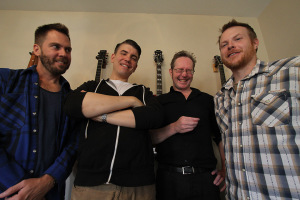
Nathan Jun, associate philosophy professor and coordinator of the department, wanted to start a band.
“I came to this conclusion some time toward the end of last year that I wanted to play music again,” Jun said. “I wanted to be in a band in an effort to improve my quality of life.”
While Jun said he wasn’t too serious about his desire to start another band, he also didn’t expect to meet a musician he once idolized—and he certainly didn’t expect to be working around the corner from him.
Two professors joined the Prothro-Yeager College of Humanities and Social Sciences as full-time faculty members this fall, one of whom, Brinton Tench Coxe, associate professor of English, also wanted to start a band. Coxe wasn’t completely new the university, however. He taught in the Intensive English Language Institute before he was hired as a full-time professor.
“I didn’t really know him very well until he joined the department,” Jun said.
Jun said he and his wife hosted a party last summer and Coxe and his wife, Kirsten Lodge, assistant English professor and humanities program coordinator, were invited.
“We got to talking about music and I mentioned Bedhead just in passing and he’s like, ‘Oh yeah, I was in that band.’ And I couldn’t believe it. I did not know that and nobody ever mentioned it, because why would they, I guess,” Jun said. “I just flipped out.”
The reason for Jun’s flip out is simple: Coxe was once a guitarist of the seminal, Dallas-based slowcore band Bedhead.
“The other bands that I had played in had some local or regional respect, but not on the large and national scale,” Coxe said. “When you think about NPR featuring Bedhead, you think about the fact that we were able to play in Europe, Canada, the United States, and we didn’t have to sleep on stages or in the corners of people’s studio apartments. We could actually stay in hotels or motels and be paid and have meals, and yet have the respect of critics that saw the band and what Bedhead were doing.”
Jun said he saw Bedhead perform in Chicago when he was in college, and now, about 16 years later, he said he can hardly believe that he works with one of Bedhead’s guitarists.
“I saw them play once, it was on their last American tour. I’m pretty sure it was ‘98 in Chicago at the Empty Bottle. It’s this small, intimate sort of venue and I was one of these people who had to be right up front so I’m sure I was maybe a couple feet away from him,” Jun said. “It’s just so weird. Who would have thought that however many years later he would end up being my colleague at Midwestern State University. It’s just crazy.”
Crazy indeed, Coxe agreed.
“It’s really just one of those, I don’t know, one of those moments where you think, ‘Really? Could this have happened?’ and it did,” Coxe said.
Coxe said Richie Bates, husband of Cortny Bates, special collections librarian and associate university librarian, is a musician and he was also at Jun’s party.
After proposing the idea of forming a band with Coxe and Bates, Jun said the three were able to “hobble the band together” after Angela Lynskey, assistant education professor, sent Jun a message on Facebook that her husband Adam played drums.
“We kind of stumbled into it eventually,” Jun said.
But the transition into actually playing as a band, since titled Time Image, was much easier.
“It was like, ‘Let’s just play,’ and it clicked. I tried to count this: I think this is the fourteenth band I’ve been in, I think. Some of which did not last very long at all, either because it wasn’t really serious or because people just didn’t get along,” Jun said. “I can honestly say that this is probably the only band I’ve ever been in where we just clicked from the very beginning. I think a lot of it has to do with being grown up and not having particularly high expectations from something like this.”
Coxe said he felt the same way, that being older helped the four members get along, but he said their musical backgrounds didn’t hurt.
“Because all of us have played in different bands, and in different guises and different styles, it’s very easy for the four of us to read each other musically, and that’s not always the case,” Coxe said. “When you get four people together who don’t know each other very well, either you click or you don’t.”
While Coxe said the four members of Time Image have equal input in the band’s music, Coxe said Jun has been “writing like crazy” since they began practicing. Jun said they may already have enough material to play three sets.
“In theory, yes,” Coxe said. “In practice, no. We still need to practice some more.”
At their latest practice session, the four discussed some details of their upcoming Dec. 12 opening set at Iron Horse Pub, from merchandising to small tweaks to their music.
“That was fantastic. I like the song even more now,” Jun said after the band finished playing a change proposed by Bates.
“This is the nicest band I’ve been in,” Bates said. “Everyone is such a gentleman.”
As soon as they finish playing a song, there is only a flash of self-satisfaction on their faces before they immediately begin critiquing their performance or proposing changes to lyrics, always looking to improve.
“One of the songs we have was simply improvisation. Adam started with a beat, I came in with a bassline, Nathan started adding guitar, Richie started singing, and everything sort of comes together,” Coxe said. “That’s basically how it’s been from the beginning. No one came in saying, ‘OK, this is my vision, here’s what we’re going to sound like.’ ”
But the most important part, the two Prothro-Yeager professors said, was that they are all having fun.
“It’s just like, we’re old and we like music so let’s have a band,” Jun said.
Coxe said he remembers the anxiety of trying to “make it” in the saturated Dallas music scene, but he doesn’t seem to miss that pressure.
“Because we’re doing this for ourselves there’s a lot less pressure,” Coxe said.




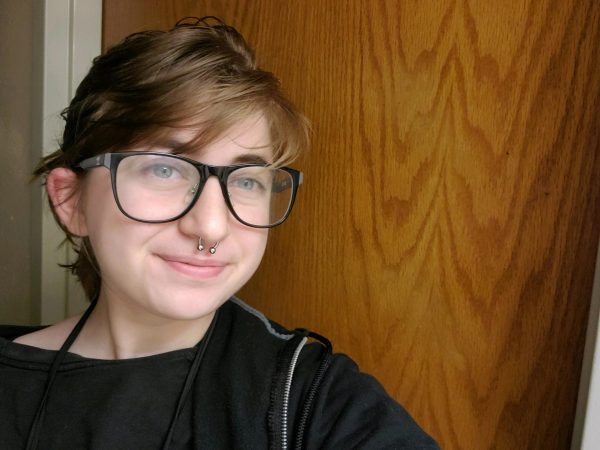
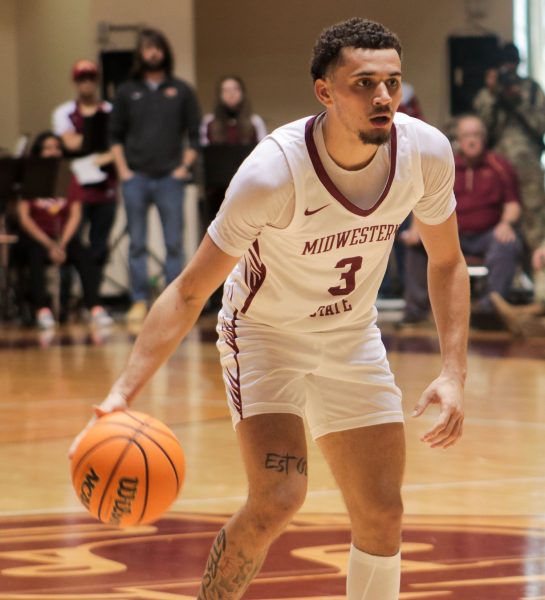
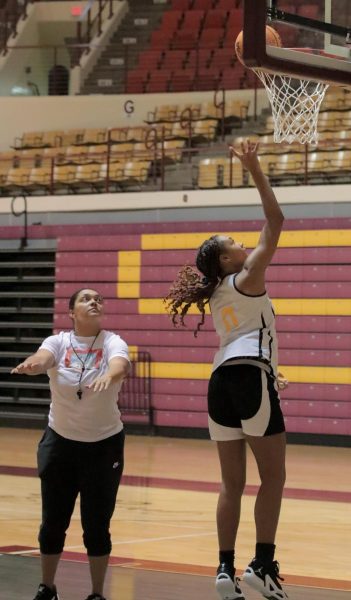
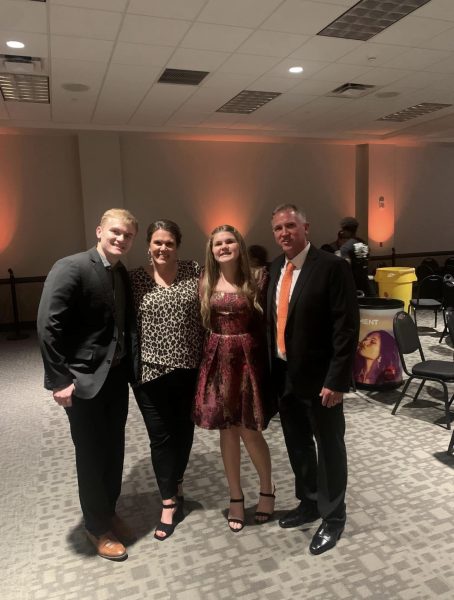
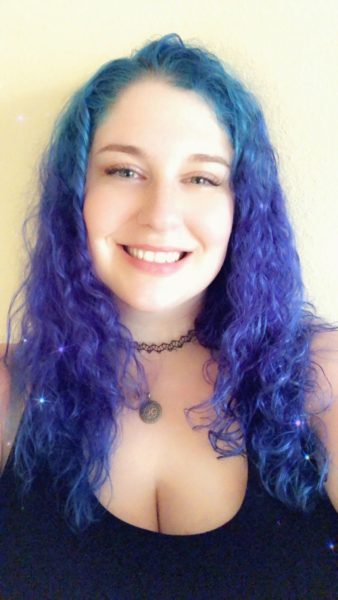
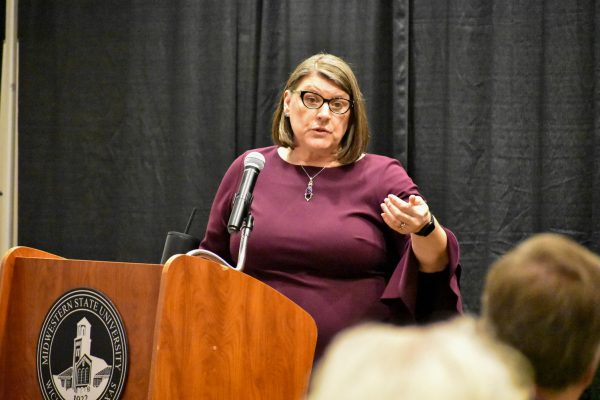
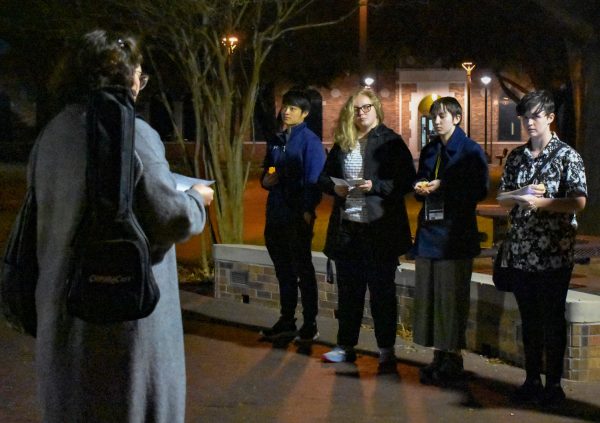
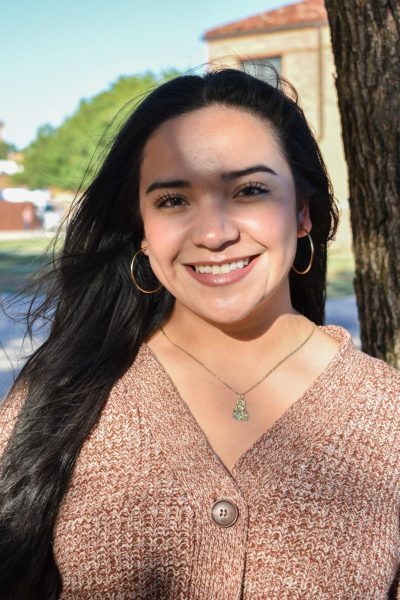
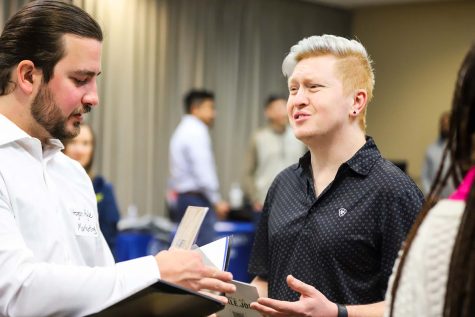

Joe Hamm • Sep 16, 2019 at 1:55 AM
This article was sick. I generally hate boomers with a passion, but it warms the cockles to see Coxe landed on his feet.